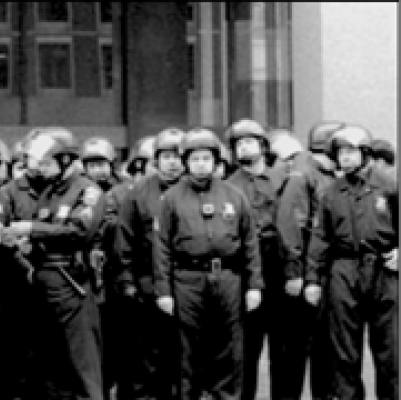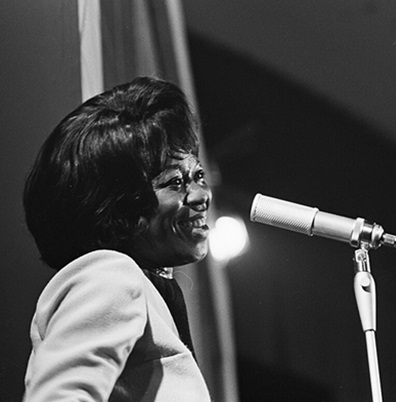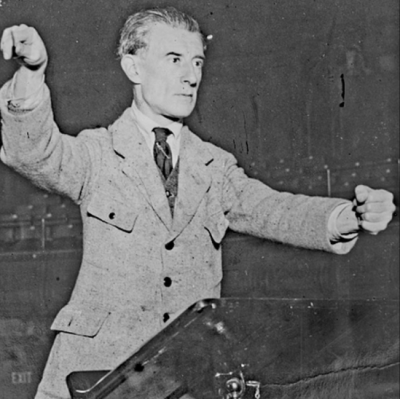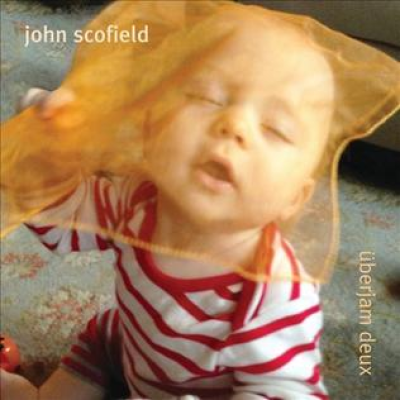.
.
“Postpartum” was a short-listed entry in our recently concluded 68th Short Fiction Contest, and is published with the consent of the author.
.
.
___
.
.
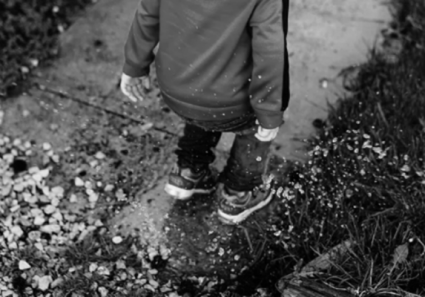
.
Postpartum
by Anastasia Jill
.
.
…..The Time After
.
…..We chose not to bury our son. I hate coming home to his ashes every day.
.
**
.
…..The average cesarean takes less than two minutes, but with him, it took well over ten. He was a stubborn little cub. Didn’t want to be born, I guess. He came out headfirst – or mouth first, I should say, with the crying. After years of speculation and a nasty insemination procedure there he was, nine pounds, three ounces, our little miracle: Bolan Fintan Patton.
…..I didn’t get to hold him. He was purple, and my abdomen was bleeding. The next day, my baby boy was nestled into the arms of an incubator. My wife held tight to my hand, her free one wrapped up by a finger. Ruth says I imagined that; I never tell the story medically correct.
…..“He was in the NICU,” Ruth tells me now. “Bolan was never in the room.”
…..“It doesn’t matter to me. It felt like he was there.”
…..Ruth sits back in her chair. “You always were so foolish.”
…..These days, Ruth is cold and callous, her words cut concisely like chicken from the bone. We don’t do much talking anyway, because there is nothing to say.
…..It doesn’t seem right. Talking. Breathing. Living life, when Bolan can’t.
.
**
.
…..“The ashes are in a box engraved with the tree of life,” Ruth explains over the phone to a friend. I sit back and pretend to sip coffee, the fumes stroking the sorest parts of my morning.
…..Once she hangs up, I say, “Stop doing that.”
…..“What?”
…..“Calling our son ‘the ashes.’”
…..Ruth speaks my name softly, “Naomi. Please.” That tone means…well, it can mean many things, but today, it’s a gentle warning; she hasn’t had her breakfast, she has a long day at the office, and we won’t interrupt that by talking about our dead child.
…..I have nothing more to say to her, except, “You’re the one who wanted him here.”
…..She pinches the bridge of her nose. “It was cheaper.”
…..“It’s not like we had a funeral.”
…..“And what would that have been like?”
…..We let the silence dangle, a mobile of regrets and tension hanging from the ceiling. The funeral would have been empty; we had no family since our parents were old or dead or had disowned us years ago for being gay. Our son – our beautiful son – had no friends, no one…no one except for us.
…..“It would be nice to go and visit,” I say.
…..“Naomi, this isn’t a timeshare.”
…..Without any warning, I stand and smash the cup onto the floor. Coffee bleeds into the soles of my socks as I shame her, “He’s not a ‘this.’ He is our son.”
.
**
.
…..I catch myself in present tense despite wanting to live in the past.
…..Bolan is…Bolan will….
No, I remind myself: Bolan ‘was.’
…..It’s hard when his bedroom door is sitting half open, bedspread pulled back, room ready for him to come back at any moment. I haven’t been in there, but know how it looks; deep blue walls, a mess of clothes, bookshelf holding every knick-knack and trinket, but no books. Ruth always hated it – the clutter and mess – but she let it go. We had bigger battles than what was left on the floor.
.
**
.
…..Ruth stays at work later every night. I don’t have that luxury. Each day, I clock out promptly at five. Today the walk to my car seems longer as clouds hang down, dripping water on the earth like leaves of a willow tree.
…..Bolan loves rainy days, always more than the sun. Jumping from puddle to puddle, he dances until he is soaked. Even at age twelve, he finds the coltish things to be the best. I don’t want to fight him on it; I don’t want to be that kind of mom. Even when he walks in, tracking mud on the carpet–
…..Walked, I mean.
…..Whenever Bolan walked inside.
…..I get into the car as the drizzle turns to downpour and the window wipers turn the drops into a mess of hurricane. I sit there for a while, watching patterns form on the glass and wonder if Bolan is the cause of the storm.
…..This is the point where Ruth would remind me that there is no God. There is no heaven. She got that out of my system around the time Bolan first became depressed. After all, what kind of God would do this to our precious boy? But our problems started long before God and would be there years after.
…..I drive home in the rain. My wife isn’t waiting for me, but in the dark, as always, the ashes are.
.
**
.
…..Ruth stumbles in around ten of midnight intoxicated not from drinking, but from exhaustion. She throws down her briefcase and works out of her skirt and blazer before collapsing into bed, on the other side.
…..“Ruth?” I say.
…..“Hm.”
…..“Why don’t you lie with me?”
…..She pressed a palm into her forehead. “I am lying with you.”
…..“Yes, but we’re not together.”
…..She pulls further away if that was possible. Turning on her side, she flicks off the light on her nightstand and that’s it until we wake up in the morning.
.
**
.
…..When I come to breakfast the next day, a pill bottle sits in front of my place at the table. Ruth barely looks at me over her coffee and says, “The doctor gave those to you for a reason. If I have to take them, so do you.”
…..I look at the bottle, a knife wedged in the table’s mahogany skin.
…..“I won’t take it,” I say.
…..“You have to.”
…..“I don’t want to.”
…..She sighs, full and deep. “Naomi…”
…..“I lost a child and I am depressed, but that doesn’t mean I need medication.”
…..“God, you sound like Bolan throwing a tantrum.”
…..My cheeks start to burn and a fire fills my throat but I can’t throw a tantrum. God, how I wish Bolan were here, even if he was crying, snotting, or even throwing tantrums.
…..I walk to the table as a symbol of parlay. A generic name stares at me from the bulb of plastic. The pills have already been sliced in half, fragments of serotonin to fill the missing pieces of my brain. But there is a Bolan sized tumor that I never want to see medicated out of existence.
…..“I see what you’re doing,” I tell Ruth.
…..“And what’s that?”
…..“Trying to make me move on.”
…..She sets her mug on the counter and pinches the bridge of her nose. Inhaling deep, she says, “I have to go to work.” She leaves me there, the pills hanging from the noose of my hand.
.
**
.
…..I call out of work today, so all I have is time to sit and stare at the many photographs of my son. The light gleams off each frame like a memory. I scan picture after picture, analyzing where exactly the light died, and my little boy decided he didn’t like living anymore.
…..The first time Bolan came home crying, I held onto him tight while he sobbed tears thick as milk into my stomach. He was seven at the time.
…..I asked him, “What’s wrong?”
…..He wiped his nose on the back of his hand. “They made fun of me.”
…..“Why?”
…..He huffed, lungs heaving like a man well beyond his years. “I don’t even know today. They just think I’m weird.”
…..I took him to the living room and set him on my lap, and held him close with his rainbow colored shirt and pink shorts. Bolan was always eccentric, and the other kids had never taken to it. He was so happy and friendly, always got good marks on his report card but he never made friends. It worried me for years but when Ruth came home, she would tell him to buck up. “Stop drawing attention to yourself and make an effort to fit in.”
…..“I don’t want to fit in,” he would say.
…..Ruth dismissed him. “Everyone wants to fit in.”
…..I lost count of the number of conferences we held with the school, the number of her peers that would never be held accountable. Ruth had less sympathy. “Stand up for yourself,” she said. “If you’re going to act that way, you can’t let people push you around.” He listened to his mother, despite my protest, and came home with bruises and skinned knees to show for it. One day, a black eye scarred his face, a price to pay for him wearing nail polish. After that, Ruth didn’t bring up the subject again, only sitting warily by as I cleaned the dirt from his face.
…..The war on Bolan moved on, as all great wars do. Bolan was never able to recover his social standing, or make any friends.
…..It shouldn’t have been surprising, in retrospect, that our boy gave up on the fight.
…..The last picture we have of Bolan is perched too proudly on the mantle. His school yearbook photo. He wore all black and didn’t smile. Ruth chewed him out the morning she left, threatened with weeks of grounding if he didn’t try and look more presentable. Bolan walked out like he hadn’t heard a word.
…..It still pains me. He didn’t smile because he was already gone inside.
…..I’m still staring at that last picture when Ruth comes in the front door. I haven’t the slightest idea of what time it is, but the sun’s still out, so she must be early.
…..“You’re supposed to be at work,” she says.
…..I shrug and tell her, “It doesn’t matter.”
…..She lingers with her briefcase, loosening shirt from tuck and taking her time, scanning the pictures that decorate our living room. She stops before the last one. “It’ll be six months next week.”
…..A clump of sadness gathers in my throat and forms a hive that won’t let me talk.
…..Our eyes work in tandem as we glance across the room and memorize spaces: where he took his first steps; the spot on the table where he kept and eventually dropped his goldfish; the spot on the wall that was a different shade of white because he took crayons to the paint and we had to cover it up. I stopped at the kitchen counter and the yellow stool with the chipped trim.
…..We acquired that at a garage sale or discount store when we were young and broke and trying to furnish the place. That stool became a special place, somewhere along the line. Bolan decided that it was his stool and opted for doing everything sitting on it.
…..He jumps up there when I’m trying to bake cookies, and sticks his finger in the bowl for a bite. He sits there and does homework, tongue poking out between his lips in a fixed stare of concentration on art projects or long division or history review. He used that chair to reach shelves that were too high, sat there pouting when we moved it to the corner for a timeout. In the last few weeks of life, he would sit there, head on the counter, not saying anything, just waiting for me to come in with a pat on the back and an offer to talk.
…..One night – one of the last nights before he died – I found Bolan curled up on the floor of his room, surrounded by dirty clothes and crying. I knelt at his side and tried to coax him into bed or, at the very least, in an upright position. Ruth heard and came in, ready to pick a fight but decided against it, leaving me alone with our son at wit’s end. I offered to take him out for ice cream; a last-ditch effort to get him out of the house.
…..“Fuck’s sake mom, I’m not five,” he’d said.
…..“Language,” I warned. “Come on, it’ll be fun.”
…..He protested, but rose from the mess and lumbered his way down the hall. I followed behind him, gathering my purse and turning off the loose lights. When I entered the kitchen, he was slumped on that chair, forehead pressed to the counter, and his eyes were closed. He was awake, but it looked like he’d stopped breathing. We never got ice cream that night. He just sat in the chair until Ruth finally caved, carrying him to bed.
…..Ruth looks over too, and the same hive catches her throat. Tears run down her face before I can catch them, but we catch each other like we didn’t catch our son.
.
**
.
…..We both found him shortly after he took his own life; a rope around his neck and the footstool from the kitchen kicked out beneath his feet. I don’t know what I expected following the trebles of Ruth’s screams, but I left the room feeling husked out and empty. It was a feeling I can’t ever describe, not to someone who hasn’t lost a child.
…..Bolan’s eyes were crimson and her lips, an amethyst hush, the same color as his skin when he was born. There were scratch marks on his neck and the collar of her shirt torn like he’d tried to break free from the prison he created. His mouth foamed like a rabid dog’s, he’d soiled himself, and blue bruises on his arms led to clenched fists. Rigor mortis must have set in. He was stiff, a Lazarus statue of suicide but he wouldn’t wake, no matter how hard I sobbed and prayed to the Lord for renewal.
…..Many things happened that night – police and emergency technicians arrived, we answered questions as our baby was taken away in a body bag. Ruth remembers better than me. I was uncharacteristically silent because all I could think of was my child, now zipped up in black, being tossed into the ambulance like a chicken egg into an incubator.
…..The next part I forget; chasing the ambulance. I broke my silence with a screech and barreled down the street like an army wife towards a train. Ruth caught me by the waist and said, “Naomi, there’s no point!”
…..I sat in the street and I cried.
…..I cried for our baby, and the years it took to have him, the years we invested in his well being. His selfishness, our selfishness. Did we not love him enough?
…..“No,” Ruth had said. “That’s not it at all. Maybe he just didn’t love himself.”
…..Ruth picked me up – a struggle, really – and hoisted me back in the house until I calmed down. We went to the medical examiner’s office and went about telling her teachers. That night, we didn’t sleep. In the morning, Ruth went to work and the pair of us have been avoiding each other ever since.
…..I come back to that same image of our son, lifeless and hanging from her fan, the wanton chair still sitting in our kitchen where he never will again.
.
**
.
…..Later in the night, Ruth finds me curled on the bathroom floor, biting my nails down to the cuticle. The red slime trickles around my fingers, swirling around the skin but refusing to fall. My tears are frothy on my cheeks like they’re crying down someone else’s face. I am wearing a sweater and nothing else.
…..I don’t make a noose, but the sentiment is the same.
…..The yearbook picture where Bolan isn’t smiling sits smashed in front of my feet. The glass is there, handy, but Ruth cleans it before I get the chance to think such thoughts. It pricks her. She rubs red lines onto her pant leg as she says, “You’re being ridiculous. Just because Bolan cut his life short doesn’t mean we have to do the same.”
…..I spat out, “How dare you?”
…..“How dare I? How dare you? You’ve been so focused on his death that you haven’t paid attention to his life. For months, it’s been moping and staring at pictures, reflecting on the past in the wrong ways.”
…..“But he’s gone!”
…..“And you think this is going to change it?”
…..When I begin sobbing, Ruth ebbs her temper and lowers herself to my level. “What were you thinking of doing before I came in here?”
…..I shook my head.
…..“Tell me.”
…..The sobs broke me in two. “I just want to be with my baby boy.”
…..For the first time since Bolan died, Ruth sheds a few tears. Not sobbing – she’s more reserved than I – but the tears are thick and fat, full of the emotions she’s suppressed. “I love you,” she tells me like she hasn’t in a while. “If I walked in a few minutes later…if you’d abandoned me too…”
…..I sighed and managed a brief, “I’m sorry.”
…..After a few beats, she gathers me in her arms the way she did that night in the street. We pile into bed together, and I relax into her shoulder. I took notice of the somber lines folding her face into an older, more jaded, much more depressed woman. Reaching up, I try to smooth it out and bring my Ruth back to where she was before.
…..Neither of us is like before. We would always be a little bit empty. I kiss her on the cheek as the tears begin to subside. In our room is a much happier picture of Bolan, from kindergarten, and I realize I will follow that gap-toothed smile wherever it goes.
.
…..Childbirth
,
…..When Bolan was born, I suffered from postpartum depression, and the first months at home with my son were infected, like maggots. I couldn’t hold or nurse him, and I regret that time so much. Ruth reminds me every day that it wasn’t that, but all the love I gave that defines me as Bolan’s mother.
…..We still don’t hold a funeral, but we decide to bury the ashes if for no other reason than to cope with the fact he’s gone. We buy a plot of land at Greenwood Cemetery, at the lip of the road by the large tree and lake. We wait a few months until the headstone is made and then we bury him:
Bolan Fintan Patton.
Beloved Son
of Ruth and Naomi Patton.
.
…..We bring peonies and roses and place them on the grave, a teddy bear, a couple balloons, and an angel figurine. I spent an hour at the store, making sure the angel was white and unblemished. It shines like a new tooth against the gritty headstone.
…..Our posture comes to match that of the angel figure – kneeling and sobbing and mourning. I do not cry out of mourning though. I do so out of tenderness: for the boy who painted his nails to be like us and brought home straight A’s, even in chemistry and math; the boy who swam like an Olympic champion and could hula hoop for five minutes straight; who played piano beautifully and could do so without reading sheet music; who loved riding bikes and wanted to perform in front of people one day. Most of all, his life was given to be our son, our little boy.
…..We sit in silence for a while until I ask, “Do you think he’s in heaven?”
…..“Heaven isn’t real.”
…..“Is it? You want to believe that our son is really gone.”
…..I cry for a few more minutes and say, “He’s never really gone. Wherever we go, he’s with us, even if it’s just in our minds.”
…..“Remember when he was born?” I ask Ruth.
…..“He almost died,” she says plainly.
…..“No, I don’t mean that. You wanted to name him Mason.”
…..“And you wanted to name him Leaf. What’s your point?”
…..I wipe under my eyes, succeeding only in smudging my makeup. “After childbirth, what made us settle on Bolan?”
…..“Beats me.”
…..“It’s pretty.”
…..“It suited him, I suppose.”
…..Then I remember, the doctor who saved her was Dr. Bolan.
…..“You remember that wrong,” Ruth says, but with a smile. “You remember that whole day wrong.”
…..“Maybe I did,” I say with resignation as a gentle breeze tousles my hair, then Ruth’s. It feels good, comforting, like a fine, satisfying delivery.
…..Eventually, we leave and return to our home. We both clean up and get ready for work. Tonight, we will come home just to each other.
.
.
___
.
.

Anastasia Jill is a queer writer living in Central Florida. They have been nominated for Best American Short Stories, The Pushcart Prize, and several other honors. Their work has been featured or is upcoming with Poets.org, Sundog Lit, Flash Fiction Online, Contemporary Verse 2, Channel Magazine, and more.
Editor’s Note: Anastasia Jill’s story, “Company,” was the winning story in the 63rd edition of the Jerry Jazz Musician Short Fiction Contest. You can read it by clicking here.
.
.
___
.
.
Click here to help support the continuing publication of Jerry Jazz Musician, and to keep it ad and commercial-free (thank you!)
.
Click here to read “Saharan Blues on the Seine,” Aishatu Ado’s winning story in the 68th Jerry Jazz Musician Short Fiction Contest
Click here to read more short fiction published on Jerry Jazz Musician
Click here to read The Sunday Poem
Click here for information about how to submit your poetry or short fiction
Click here for details about the upcoming 69th Jerry Jazz Musician Short Fiction Contest
Click here to subscribe to the Jerry Jazz Musician quarterly newsletter (it’s free)
.
.
.
___
.
.
Jerry Jazz Musician…human produced since 1999
.
.
.









